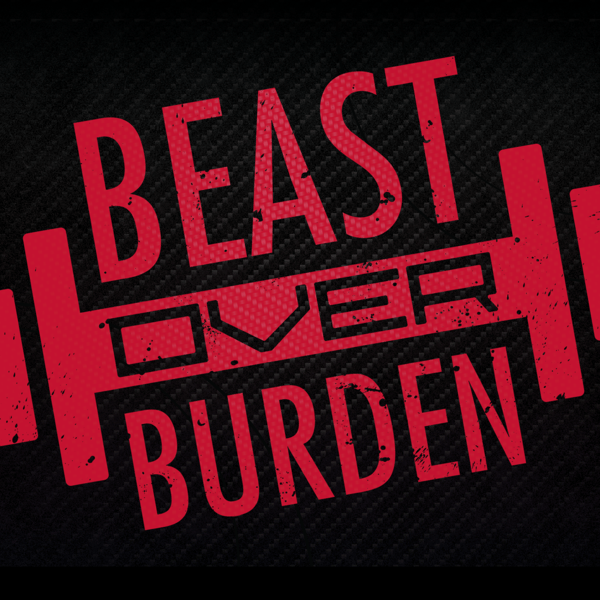Training Principles for Lifters 30+: Build Strength, Save Time, Stay Consistent
Beast over Burden powered by Barbell Logic
Barbell Logic
4.6 • 1.2K Ratings
🗓️ 8 April 2025
⏱️ 31 minutes
🧾️ Download transcript
Summary
Training Principles for Lifters 30+: Build Strength, Save Time, Stay Consistent
Training can feel overwhelming, especially with so many conflicting voices in the fitness world. In this episode, we break down the key principles of effective, time-efficient strength training to help you build physical freedom, longevity, and resilience—without wasting hours in the gym.
Many lifters struggle to balance fitness with the demands of real life. Whether you're in your 30s, 40s, 50s, or beyond, training smart is essential to staying strong, capable, and injury-free. This episode lays out the fundamental principles of resistance training, how to maximize results with minimal time, and why strength is about more than just muscle—it’s about building a body that supports your long-term health and daily life. If you’re looking to train efficiently while maintaining consistency, this episode is for you.
The Key to Sustainable Strength Training
One of the biggest factors in a successful fitness routine is sustainability. Many people create unrealistic training schedules that don’t fit their lifestyle, leading to burnout or inconsistency. Instead of aiming for an unsustainable six-day-per-week program, consider what is truly realistic for your life.
For most middle-aged lifters, two to three resistance training sessions per week—totaling around 90 minutes—can be incredibly effective. Aiming for 8,000-10,000 daily steps further supports overall fitness without adding excessive strain. Remember, consistency over time matters more than short bursts of intense training.
By focusing on a realistic, sustainable plan, you set yourself up for long-term success rather than short-lived motivation that fades away.
The Most Efficient Exercises for Strength & Longevity
Not all exercises are created equal. To get the biggest bang for your buck in the gym, prioritize movements that work multiple muscle groups and joints simultaneously. These include:
-
Squats (engage legs, core, and balance)
-
Deadlifts (train posterior chain, grip strength, and overall power)
-
Pressing Motions (like bench press or overhead press for upper body strength)
These compound movements build muscle, strengthen connective tissues, and reinforce natural movement patterns essential for daily activities. If time is limited, focusing on these fundamental lifts ensures you're making the most of your gym sessions.
Additionally, barbells are a powerful tool due to their scalability, availability, and ability to progressively overload—allowing you to steadily build strength over time. While machines have their place, free-weight movements generally offer more functional benefits for long-term fitness.
Making Strength Training a Lifestyle, Not a Burden
One of the biggest barriers to consistent training is the feeling that it’s a burden. Instead of treating workouts as a chore, approach them as an investment in your future self. Think of training like cooking—just as a good meal balances salt, fat, acid, and heat, an effective program balances strength, mobility, and endurance.
It’s also important to trust the process. Results don’t happen overnight, and progress requires faith in the system. Strength training is about more than aesthetics—it’s about preserving function, preventing injuries, and feeling like a beast well into your later years.
By establishing core training principles and sticking to them, you can cut through the noise of the fitness world and focus on what truly works for long-term health and physical freedom.
PS - IF YOU'RE INTERESTED IN TAKING ONLINE COACHING FOR A TEST RUN, CHECK IT OUT HERE.
Transcript
Click on a timestamp to play from that location
| 0:00.0 | You're listening to Beast Overburden, powered by Barbell Logic. |
| 0:06.2 | We're Nikki and Andrew, your personal, professional coaches. |
| 0:09.0 | We help you take control of your fitness through hard but doable training and nutrition practices that fit your busy life. |
| 0:17.0 | Build a stronger, healthier version of yourself with lifelong habits. |
| 0:24.8 | Hello, Beasts. Happy Tuesday. I'm your host, Nikki Sims, with me as Andrew Jackson. |
| 0:31.0 | Welcome to Beast Overburton, powered by Barbell Logic. It's good to have you back. |
| 0:35.7 | We are starting a new series today. We're excited. Thank you so much |
| 0:39.4 | for listening to the previous one we just wrapped up on nutrition. We imagine you have some |
| 0:44.6 | burning questions on your end about the actual physical part of physical freedom. So we are |
| 0:50.9 | going to talk a lot about that, address questions about how to do it, what tradeoffs |
| 0:57.1 | you're going to have to make, what you're going to run into, how to navigate the real life, |
| 1:02.1 | you know, real life actually training when you have families and other things you want to do |
| 1:06.3 | and real life stress because it takes some coordination. |
| 1:10.4 | But Andrew, you were listening to one of your favorite podcasts recently and amazingly, |
| 1:18.1 | not at all related to fitness, very much. |
| 1:21.4 | The all-in pod. |
| 1:22.6 | Yeah. |
| 1:22.9 | Highly recommend they were doing a science corner at the end of the last episode. |
| 1:27.6 | A great part of that podcast. |
| 1:29.4 | On GLP1, inhibitors, actually. |
| 1:32.2 | And they've got one guy, David Freeberg, who's the Uber nerd. |
| 1:37.3 | I mean, these guys are all nerds. |
... |
Please login to see the full transcript.
Disclaimer: The podcast and artwork embedded on this page are from Barbell Logic, and are the property of its owner and not affiliated with or endorsed by Tapesearch.
Generated transcripts are the property of Barbell Logic and are distributed freely under the Fair Use doctrine. Transcripts generated by Tapesearch are not guaranteed to be accurate.
Copyright © Tapesearch 2025.

